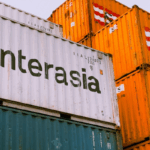Europe is on the brink of responding to American industrial policy with its own protectionist measures, contributing to a destructive arms race of state intervention. In 2022, the US passed the CHIPS act, a $280 billion collection of funds for investment into new “technological” industries. In doing so, the United States, once a supposed bastion of free trade and economic liberalism, ushered in a new era of industrial policy.
While it is perhaps too soon to evaluate the success of the CHIPS act at achieving its stated goal of creating a fully domestic supply chain for “strategically important” manufactured goods, the bill’s price tag and the development in the American Chips industry that predates the bill suggest it is may at best be wasteful and distortionary. Yet, the cost of the CHIPS act may be many times larger than its simple price tag. Our friends in Europe see American consolidation of technological industries as a threat to their own economies. Unsatisfied with their equivalent CHIPS act, many in Europe are calling for fundamental reform to the European economy in response to American and Chinese actions. Former Italian Prime Minister Mario Draghi is at the center of this push for European “competitiveness,” and in an upcoming report to the European Commission, he is anticipated to call for a series of drastic reforms. In response to our interventionism, Europe seems set on implementing its own harmful industrial policy, heralding a new era of economic warfare between power blocs.
The basic motivation behind European calls for centralization is not a new one. European leaders believe themselves to be in a weak position, and they see centralization of the economy through industrial policy as a way to strengthen their hand. This feeling of weakness is not hard to explain. The European economy has been persistently weak since the 2008 recession. The Eurozone crisis precipitated nearly a decade of slow growth. Just as the continent was beginning to recover, the COVID pandemic forced lockdowns and overzealous spending, which in turn produced years of inflation. As if the continent wasn’t doing poorly enough, Russia invaded Ukraine, precipitating further sanctions and an end to the supply of Russian natural gas. A slow economy has discouraged investment, and Europe is lagging behind in strategically important industries.
Draghi, for his part, sees the problem as one of disunity. He argues that while Europe has “the same natural size advantage…fragmentation is holding us back.” Rather than focus solely on reducing barriers to economic integration, however, he and others in Europe seem set on simply trying to copy American industrial policy. In a speech in June he called for the EU to use “subsidies and tariffs to offset unfair advantages created by industrial policies and real exchange rate devaluations abroad.” Rather than save the continent’s economy, Europe leaders will likely only succeed in copying our mistakes.
Taken at face value, some aspects of this push for unification are grounded in sound economic logic. Draghi calls, in part, for regulatory standardization in telecommunications and tech industries in general. Past research has found that in technological industries in particular, differences in regulatory regimes between countries obstruct the creation of large-scale networks. As a result, Europe is unable to create the extensive supply chains that new industry requires, and cannot benefit from economies of scale.
Those calling for European “competitiveness” do not mean actual economic competition. Instead, their goal is strategic power through centralization and intervention. European leaders believe that the continent must have “key” industries to produce goods like microchips, regardless of whether Europe actually has a comparative advantage in those industries.
This kind of political competition between governments, rather than market competition between companies, leads to lower efficiency as governments protect unprofitable industries. True, private industry would still have a role, but Draghi and others want to encourage consolidation through state support. Consolidation may be economically optimal, and if so the market will tend towards it as larger firms see increased profitability. State intervention, however, would mean that chosen private companies would be protected from internal competition through subsidies and tariffs, reducing efficiency and growth. The US CHIPS act, for instance, has so far paid out the vast majority of its grants to a small handful of massive companies. State intervention will only ensure that the supply chain for CHIPS and other prioritized goods conforms to the interests of politicians and bureaucrats, rather than those of producers and consumers.
Yes, state sponsorship may boost European production of, say, microchips relative to what would be present in a free market, at least in the short term. If so, advocates of intervention will hail it as a victory. And it may be a victory, for politicians. But it will be a loss for the consumer, and, in the long run, for European strength as well. If it wants to, in the short term, the state can ensure that any one good is produced at a greater quantity than it could be in the free market. But that particular increase always comes at the cost of an overall reduction in wealth.
Every euro spent on state subsidies is a euro taken from the private sector, and thus a euro that cannot be spent on the development of an industry for which there is actual market demand, depriving other industries in the process.
Draghi himself acknowledges the need to facilitate investment in startups, but subsidies and other forms of protectionism would make it impossible for new companies to get off the ground.
Rather than engage in a losing battle of control and consolidation, the EU should side-step it entirely, decoupling Draghi’s beneficial push for an open intracontinental market from the harmful tilt towards state industrial policy. In fact, the EU could benefit substantially by leveraging the competition inherent between its member states, and the opportunity for specialization that having more than two dozen nations, each with their own particular advantages in production, would provide.
Abandoning state intervention may well require accepting some harsh truths. Europe may simply not be able to produce every single good with a potential strategic use, and that may upset some in Europe, but relying on trade for some goods and allowing the market to instead focus on those industries in which Europe excels at will lead to better long-term performance, and even eventual profit from American and Chinese mistakes. European companies could, for instance, take advantage of taxpayer-subsidized American chips to produce goods further down the supply chain, like computers or electric vehicles.
If carried out, this new era of European industrial policy will further weaken a sluggish continental economy, and may drag the US economy along with it. EU attempts at direct investment and subsidy will likely spur calls from American interest groups for even more subsidies and investment on our end. While the Biden administration says that it is unbothered by EU measures, other US officials warn that they will incur a US response when actually implemented.
Ultimately, the replacement of global, interconnected, supply chains with attempts at autarky through subsidy will only impoverish every country involved. And as Europe attempts to respond to the CHIPS act, expect American politicians to cry foul, and call for even further spending in response. Protectionism may beget more protectionism, as governments compete to bolster their power at one another’s expense.
* James Eiler is studying economics and history at Dartmouth College. He interned with AIER during the summer of 2024.
Source: AIER











